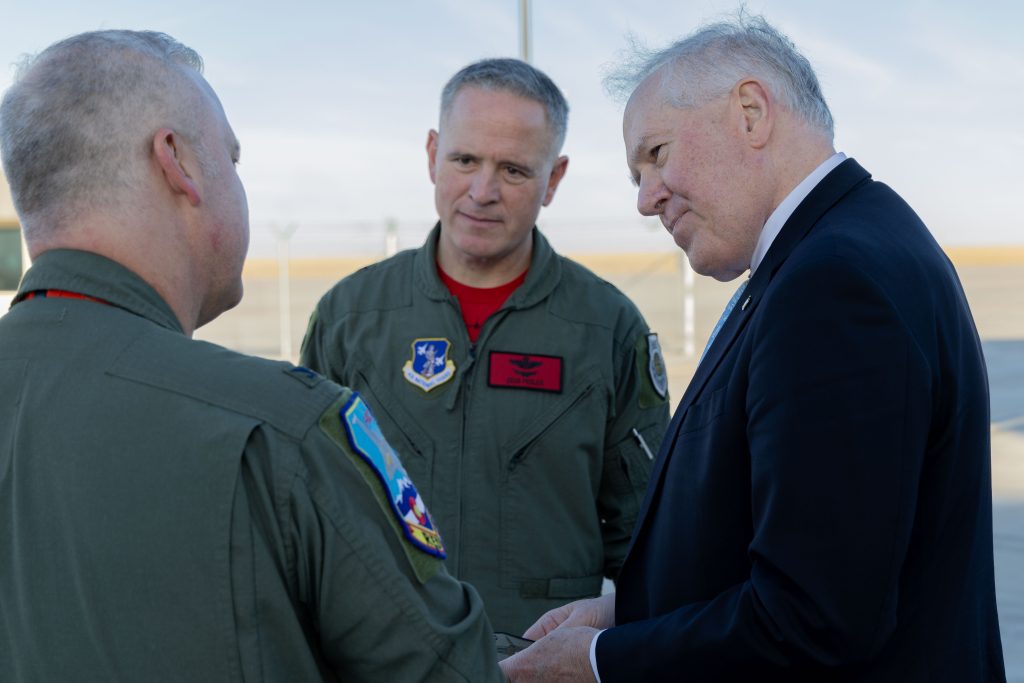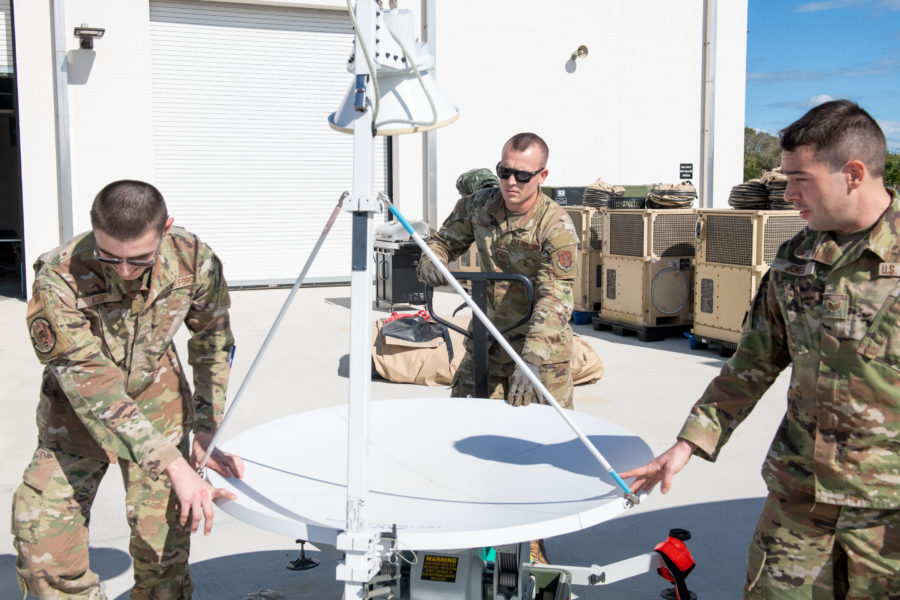Air Force Secretary Frank Kendall offered his sharpest critique yet of a proposed Space National Guard on April 10, telling reporters at the annual Space Symposium that the idea “doesn’t make any sense.”
The Department of the Air Force has a legislative proposal to fold space-focused Guard units into the Space Force, which can now accept part-time members. Absence a switch in service, Kendall argued it would make more sense to leave the units in the Air National Guard rather than establishing a separate Guard.
The debate over a Space National Guard has raged for several years now, and Kendall expressed frustration that the topic continues to be unsettled and hotly debated.
“We’ve had much, much more political attention over this issue than it deserves in my mind,” he said. “We’re talking about a few hundred people. The numbers for any state are less than, I think, 2 percent of their Guard people and there are only a handful of states are affected.”
The issue has surged to the forefront again in recent weeks after Govs. Spencer Cox (R-Utah) and Jared Polis (D-Colo.) issued a statement criticizing the Department of the Air Force for their legislative proposal, which would waive federal law requiring “gubernatorial approval before any modification to Guard units and assets within their jurisdiction.”
The National Guard Association of the United States also criticized the proposal, repeating arguments that the costs of establishing of a Space National Guard have been overstated and that Guardsmen don’t want to move and want to stay available to perform state missions.
But Kendall said those concerns are overblown and that the recently passed Space Force Personnel Management Act, which creates a single component of full-time and part-time Guardians, will help mitigate concerns Guardsmen have and ensure their lives aren’t disrupted.

“The flexibility … is going to allow people to manage their lives and their careers much more flexibly than traditional means have allowed,” Kendall said of the law, included in the 2024 defense policy bill. “So people should look very carefully at this before they make a snap judgment about whether they’re comfortable with the change or not.”
The policy bill also directed the department to conduct a study of three options: starting a Space National Guard, moving units into the Space Force, or preserving the status quo with space units in the Air National Guard.
That report will be delivered to Congress soon, Kendall said, but he previewed the results.
“We’ve had [units] as part of the Air Guard for four years now roughly, while they are doing Space Force missions,” Kendall said. “They have been sent to, in many cases, Space Force training and schools, where we can formalize that a little bit more than it is right now. Keeping them where they are is one possibility. The preferred result is to make them part of the Space Force and manage them, for the most part, as part-time Space Force people.
“The worst option, I think, and I think that this is what our report is going to show, is a separate new Space Guard for a few hundred people. It doesn’t make any sense. It’s going to cost to administer. There is not in my mind, any expectation that it will grow. And it’s going to be administratively difficult. So I don’t think that that’s a very attractive option for a number of reasons.”
There are approximately 14 space units in seven states with 1,000 Air National Guardsmen.
Asked about surveys cited by the National Guard Association showing many of those people prefer to stay in the Guard, Kendall said he was “not terribly concerned.”
“I think when you go to people and say ‘Do you want to stay like you are or jump off a cliff?’ They’re going to stay like they are,” Kendall said. “We’re not asking them to jump off a cliff. We’re asking them to go to another arrangement which will be very, very like the one that they’re currently serving under. They’re not going to see much change frankly, as I see it.”
Chief of Space Operations Gen. B. Chance Saltzman noted that as Air Force Reserve space units get folded into the Space Force, Guardsmen will see that the transition is worth it.
“They’ll get to see how we integrate those that are currently in the Air Force Reserves doing space. They’ll see how we integrate them, they’ll get to watch that play out,” Saltzman said. “That’ll give them a lot of valuable information.”
Details on that transition are still being worked out and will be phased in over time, officials said. Saltzman said they would take a similar approach with the Guard.
And if ultimately Guardsmen decide to leave military service or join the Air National Guard rather than join the Space Force, Saltzman argued the service will be able to adjust.
“We can both minimize the risk to mission and minimize the pain associated with whether people want to volunteer to come over or whether they want to stay a part of the Guard,” he said.
